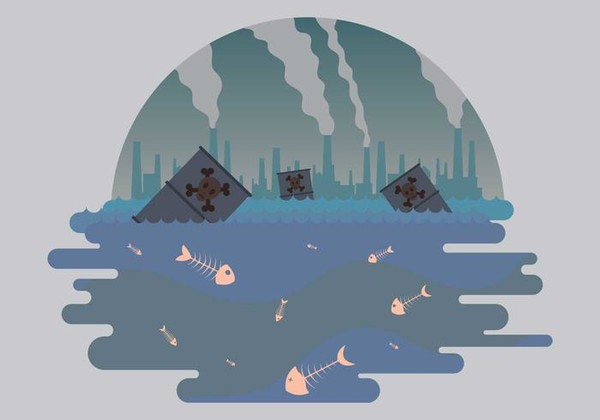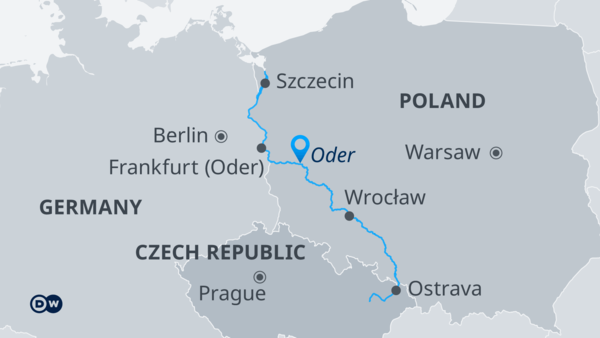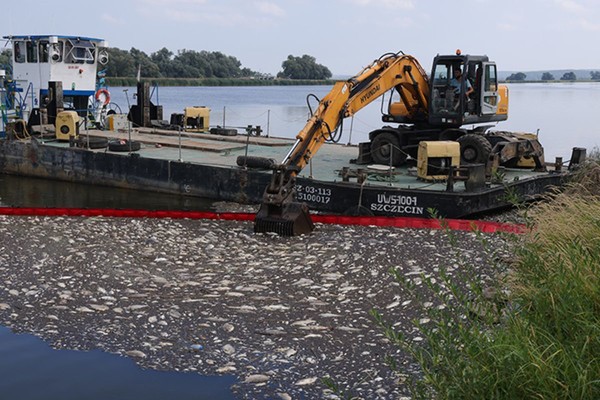
In August the BBC wrote, “Officials in Poland and Germany are trying to work out the cause of a mass fish die-off along the Oder River, which runs between the two countries.” Thousands of dead fish were found floating in the Oder River, which runs from the Czech Republic to the border between Germany and Poland. Nowakowska-Drynda, from the national firefighter press office, said on August 16th that they had collected 130 tons of dead fish. Authorities in Poland and Germany are still searching for the reason behind the mysterious death of thousands of fish in the Oder River and various possibilities have been raised. Let’s find out about the public opinion, the possible causes, and future measures due to the mass fish die-off.
1. The Public Opinion of the Fish Die-off in Oder
According to The Guardian in August, the first reports of the mass fish die-off were made by the Polish fishers and locals as early as 28th July. The Polish government has been criticized for not taking prompt action after the first reports came in. On August 18th, Polish Prime Minister Mateusz Morawiecki dismissed Przemyslaw Daca, head of Poland’s national water management authority, and Michal Mistrzak, chief of the general environmental inspectorate. The government’s indifference to the signs of the ecological disaster and lack of action is stirring controversy of their sluggish response. This has even fueled diplomatic tensions between Germany and Poland. According to an August article of The Guardian, German officials censored Polish authorities for not actively reporting this catastrophic incident.

2. Mystery Over Fish Death in Oder River
An outbreak of toxic green algae may be the most likely cause of the mass death of fish. German researchers from the Leibniz-Institute of Freshwater Ecology and Inland Fisheries (IGB) announced on August 17th that they had identified the presence of Prymnesium parvum, a type of golden algae, in samples taken from the river. IGB researchers warned that growth of algae in the affected stretch of the river is “definitely a man-made problem” rather than “a naturally occurring phenomenon.” They suggested possibilities of contamination by dry, hot weather, or unauthorized discharge of Industrial waste.
Possibility of Death Due to Natural and Ecological Factors
“This shows that we are dealing with a gigantic and outrageous ecological catastrophe.” Przemyslaw Daca, the former head of Polish Water said in a news conference in Cigacice, Poland on August 11th. Tobias Goldhammer, an IGB researcher, mentioned that the decrease in oxygen levels as water temperature rose and water levels fell due to the subsequent drought and heat wave, increased the concentration of hazardous substances in industrial sewage flowing into rivers. He commented, “If other hazards such as toxic algae blooms or chemical contamination are added to existing pollution, this can soon destroy the entire freshwater ecosystem.” This means that the mass fish die-off due to the drastic climate change shows that we are facing an environmental catastrophe. According to The Guardian’s August article, the scientists said: “Mineral fertilizers seeping into the river from adjacent farmland also has the potential to bring about massive algae blooms.”
Potential Contamination from Unauthorized Discharge of Factory Waste
The Associated Press reported in an August article that “Poland’s Prime Minister said on Friday (August 11th) that huge amounts of chemical waste were probably dumped intentionally into the Oder River, causing environmental damage.” Anna Moskwa, the Polish Climate and Environment Minister said on Twitter on August 16th that samples of the Oder’s water have been sent to laboratories in the Czech Republic, the Netherlands, and the U.K to find the cause of the fish die-off. The Polish press even pointed at a paper company that had previously been reported to have discharged industrial sewage. However, according to the Polish tests so far, they haven’t detected mercury or other man-made toxic substances, so the possibility of mortality due to ecological factors gains more weight.
3. Prospects and Measures
The Polish Minister of National Defense, Mariusz Blaszczak, posted on his personal twitter account that Polish soldiers and reservists were called in over the weekend to assist in the huge cleanup operation. The government also banned swimming and fishing in the Oder River for the time being. Moreover, the Polish government has set a 1 million zloty (₩300,000,000) reward for people who can “help find those responsible for this environmental disaster.” The government also said that if the people who were involved in the environmental damage are identified, they will be severely punished. According to an August article of Bloomberg, Poland is seeking help from abroad to discover the source of toxic contamination in the Oder River, and the Polish authorities described the situation as “the country’s biggest environmental disaster in years.” The Polish government is currently calling for quick measures and the attention of the international community.
The mass fish die-off in the Oder River, which started at the end of July, is a huge environmental disaster, and the cause is still unknown. People cited the outbreak of poisonous algae as the main cause, but controversy arose that both German and Polish governments did not take appropriate measures, which lead to the spark of diplomatic conflict. A Polish environmental group is calling on the international community to help determine the source of pollution in the Oder River, while the government is analyzing water samples, controlling access to the river and removing the dead fish. After that, the public attention is focused on how the related countries will solve the problem and reveal the mystery surrounding the mass fish die-off.


